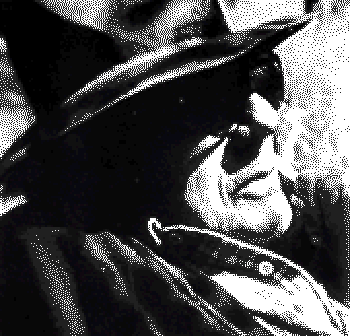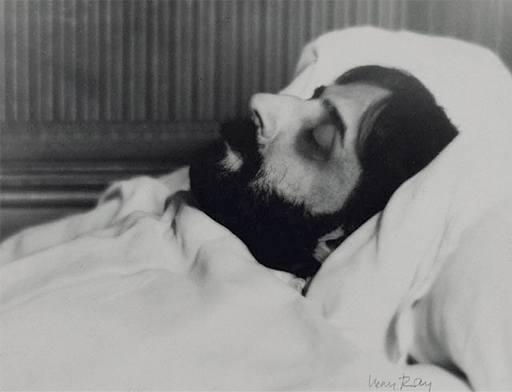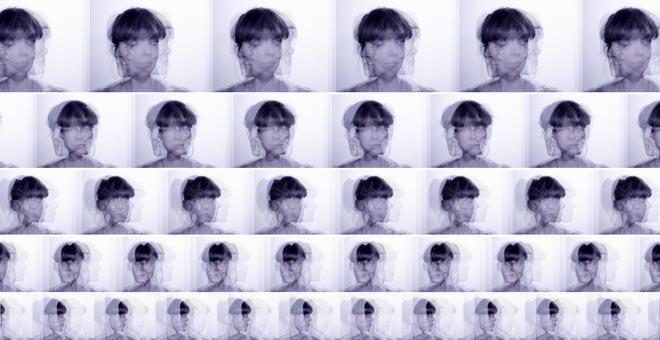MULTITUDE OF BLOGS None of the PDFs are my own productions. I've collected them from web (e-mule, avax, libreremo, socialist bros, cross-x, gigapedia..) What I did was thematizing. This blog's project is to create an e-library for a Heideggerian philosophy and Bourdieuan sociology Φ market-created inequalities must be overthrown in order to close knowledge gap. this is an uprising, do ya punk?
Showing posts with label deleuze. Show all posts
Showing posts with label deleuze. Show all posts
Wednesday, November 4, 2009
Nietzsche's aesthetic turn: reading Nietzsche after Heidegger, Deleuze, and Derrida [made in istanbul]
by James J. Winchester
http://www.mediafire.com/file/4zznundtmge/NIETZSCHES_AESTHETIC_TURN__WINCHESTER.pdf
http://books.google.com/books?id=Z50XxFecTzMC&printsec=frontcover&dq=nietzsche+aesthetic+turn&ei=tVfxSu6AIJH-zQSUsqhC&hl=tr#v=onepage&q=&f=false
http://www.mediafire.com/file/4zznundtmge/NIETZSCHES_AESTHETIC_TURN__WINCHESTER.pdf
http://books.google.com/books?id=Z50XxFecTzMC&printsec=frontcover&dq=nietzsche+aesthetic+turn&ei=tVfxSu6AIJH-zQSUsqhC&hl=tr#v=onepage&q=&f=false
Thursday, July 30, 2009
Friday, March 28, 2008
Rhizosphere: Deleuze and the 'Minor' American Writings of W. James, Du Bois, G.Stein, Toomer, and Falkner

Rhizosphere: Gilles Deleuze and the 'Minor' American Writings of William James, W.E.B. Du Bois, Gertrude Stein, Jean Toomer, and William Falkner
(Literary Criticism and Cultural Theory)
by Mary Zamberlin
Hardcover: 206 pages
Publisher: Routledge; 1 edition (April 20, 2006)
This book explores the significant intellectual impact the philosopher Jean Wahl had on the directions Gilles Deleuze took as a philosopher and writer of a philosophy of experimentation. The study of this influence also brings to light the significance of Deleuze's emphasis on "la pragmatique," inspired by Wahl's writings and teachings and his fascination with American pluralism and pragmatism, particularly that of William James. This book also attempts to put Deleuze's theories into action, to write in a deleuzian way about American "minor" literature and thought which Deleuze deemed "superior." This text inherently challenges and potentially provides an alternative way of reading/writing to standard critical approaches which Deleuze tells us necessarily reduce and distort a "minor" work's most lively, subtle and micro-politically efficient elements as they abort them from their "minoritarian" fields of meaning to coerce them into already existing, standard and standardizing concepts that belongto and reinforce the "Major Order's" organizational grid.
“It is not by means of an exegetical practice that one could hope to keep alive the thought of a great thinker who has passed away. Rather, such a thought can only be kept alive through its renewal, by putting it back into action, reopening its questioning, and by preserving its distinct uncertainties- with all the risks that this entails for those who make the attempt.” Félix Guattari
Gilles Deleuze and the Ruin of Representation

Gilles Deleuze and the Ruin of Representation
by Dorothea Olkowski
Paperback: 310 pages
Publisher: University of California Press; 1 edition (October 28, 1999)
Dorothea Olkowski's exploration of the philosophy of Gilles Deleuze clarifies the gifted French thinker's writings for specialists and nonspecialists alike. Deleuze, she says, accomplished the "ruin of representation," the complete overthrow of hierarchic, organic thought in philosophy, politics, aesthetics, and ethics, as well as in society at large. In Deleuze's philosophy of difference, she discovers the source of a new ontology of change, which in turn opens up the creation of new modes of life and thought, not only in philosophy and feminism but wherever creation is at stake.
The work of contemporary artist Mary Kelly has been central to Olkowski's thinking. In Kelly she finds an artist at work whose creative acts are in themselves the ruin of representation as a whole, and the text is illustrated with Kelly's art. This original and provocative account of Deleuze contributes significantly to a critical feminist politics and philosophy, as well as to an understanding of feminist art.
From the Inside Flap
"Gilles Deleuze and the Ruin of Representation will undoubtedly contribute to a renewed understanding of this important twentieth-century philosopher. . . . [It] contains some of the very best and clearest accounts of Difference and Repetition and The Logic of Sense, and an account of Bergson, and Deleuze's reading of Bergson, that is simply the most compelling I have read in English."--David N. Rodowick, author of Gilles Deleuze: Time Machine
"Revolutionaries, artists, and seers are content to be objective, merely objective: they know that desire clasps life in its powerfully productive embrace, and reproduces it in a way that is all the more intense because it has few needs. And never mind those who believe that this is very easy to say, or that it is the sort of idea to be found in books." Deleuze & Guattari
Deleuze and the Political

Deleuze and the Political
(Thinking the Political)
by Paul Patton
Hardcover: 176 pages
Publisher: Routledge; 1 edition (September 1, 2000)
An outstanding contribution to Deleuze studies and a significant achievement in political philosophy.
–Ronald Bogue, University of Georgia
Patton's monograph is addressed to political philosophers, but it will also be of interst to religion scholars interested in ideology, postcolonialism, and other points of connection between religion and society. His examples come from political through, but the larger issues addressed will appeal to anyone interested in the ideological functioning of individuals and communities.
–Religious Studies Review
go
Deleuze and Guattari's Anti Oedipus: Introduction to Schizoanalysis

Deleuze and Guattari's Anti Oedipus: Introduction to Schizoanalysis
by Eugene Holland
Hardcover: 161 pages
Publisher: Routledge; 1 edition (August 4, 1999)
Charles J. Stivale, Wayne State University
"Holland admirably faces the challenge of opening up Deleuze and Guattari's notoriously difficult Anti-Oedipus not only to newcomers, but also to experienced readers of their works, who will thereby benefit enormously from the clarity and rigor of Holland's study."!
Review
STRONG 'Holland's introduction ... is suitable both for those who are reluctant to begin /STRONG EM Anti-Oedipus /EM STRONG due to its notorious reputation for complexity, and for those who are, even after four hundred pages of reading, not certain of its key concept. Holland states that his aim will have been achieved if readers want to turn to /STRONG EM Anti-Oedipus /EM STRONG after reading his introduction ... [if so] the book has admirably reached its aim not only at the end of the book but also at the end of every chapter.' /STRONG - EM Psychoanalytical Studies /EM
go
Germinal Life: The Difference and Repetition of Deleuze

Germinal Life: The Difference and Repetition of Deleuze
by Ansell-Pearson
Paperback: 284 pages
Publisher: Routledge; 1 edition (April 1, 1999)
Elizabeth Grosz, Monash University
"This is a very important book which moves beyond current interpretations of Deleuze."
Brian Massumi, Australian National University.
"Highly accomplished and admirably innovative. Keith Ansell Pearson is an energetic and insightful reader of Deleuze, matched also by the depth of his knowledge of biological literature
go
Gilles Deleuze: An Apprenticeship in Philosophy by Michael Hardt

Gilles Deleuze: An Apprenticeship in Philosophy
by Michael Hardt
Paperback: 139 pages
Publisher: University of Minnesota Press (April 1993)
from a review on amazon:
Hardt's book on Deleuze can be applauded for two reasons: its careful reading of Deleuze's texts and its attempt to situate them critically among continental philosophy. Hardt is a clear writer, and his insights are often quite powerful and suggestive. However, like most writer on Deleuze his "deleuzian" reading seeks too much to reconfigure the texts (Bergson, Nietzsche,and Spinoza). Beyond Hardt's text stands the imposing shadow of Hegel -- perhaps my only hesitation with its analysis. There is a desire to find unity in difference however radical this difference might be. The key problem of scholarship on Deleuze seem to be precisely how to read him -- is the project Deleuze has laid out to reread his texts as he has reread others? How is one to be Deluezian? This said, Hardt's work is exceptional in most areas.
go
Gilles Deleuze's Time Machine

Gilles Deleuze's Time Machine
(Post-Contemporary Interventions)
by David N. Rodowick
Paperback: 280 pages
Publisher: Duke University Press (December 1997)
Although Gilles Deleuze is one of France’s most celebrated twentieth-century philosophers, his theories of cinema have largely been ignored by American scholars. Film theorist D. N. Rodowick fills this gap by presenting the first comprehensive study, in any language, of Deleuze’s work on film and images. Placing Deleuze’s two books on cinema—The Movement-Image and The Time-Image—in the context of French cultural theory of the 1960s and 1970s, Rodowick examines the logic of Deleuze’s theories and the relationship of these theories to his influential philosophy of difference.
Rodowick illuminates the connections between Deleuze’s writings on visual and scientific texts and describes the formal logic of his theory of images and signs. Revealing how Deleuzian views on film speak to the broader network of philosophical problems addressed in Deleuze’s other books—including his influential work with Félix Guattari—Rodowick shows not only how Deleuze modifies the dominant traditions of film theory, but also how the study of cinema is central to the project of modern philosophy.
go
Deleuze And the Unconscious

Deleuze And the Unconscious
(Continuum Studies in Continental Philosophy)
by Christian Kerslake
Hardcover: 246 pages
Publisher: Continuum International Publishing Group (May 8, 2007)
Deleuze and the Unconscious presents a groundbreaking and provocative re-reading of the complex relationship between the disicpline of psychoanalysis and the work of eminent philosopher Gilles Deleuze. Beginning with an exploration of Deleuze's debt to Jungian psychology and Bergson's view of the unconscious, the book goes on to argue for the relevance for psychoanalytic theory of the major works, Difference and Repetition and Logic of Sense. Kerslake concludes with an account of Anti-Oedipus that shows it, in the light of what has gone before, to be less an attack on psycholoanalysis per se, than an exposure of specific failures in the systems of Freud and Lacan.
does anyone know who is this boy?
Deleuze and Guattari: An Introduction to the Politics of Desire

Deleuze and Guattari: An Introduction to the Politics of Desire
(Published in association with Theory, Culture & Society)
by Philip Goodchild
Hardcover: 240 pages
Publisher: Sage Publications Ltd (December 23, 1996)
Both accessible and definitive, Deleuze and Guattari provides a critical examination of the writing of two notoriously difficult thinkers. This important introduction is divided into three sections--knowledge, power, and desire--and provides a systematic account of the intellectual context as well as an exhaustive analysis of the key themes informing Deleuze and Guattari's work. Providing a framework for reading the important and influential study Capitalism and Schizophrenia, this volume is attentive to the needs of the student by providing a lexicon of the difficult ideas used in Deleuze and Guattari's discussion of philosophy, art, and politics. Deleuze and Guattari is an important addition to the critical literature on some of the most challenging work in recent social theory. It will be the standard introduction to Deleuze and Guattari for students of philosophy and social theory.
go
French Philosophy in the Twentieth Century by Gary Gutting

French Philosophy in the Twentieth Century
by Gary Gutting
Paperback: 432 pages
Publisher: Cambridge University Press; 1 edition (May 21 2001)
French philosophers have a reputation as some of the most perplexing. American readers tend to dismiss them with a huff or venerate them over cigarettes and coffee. Gary Gutting does neither. His approach in French Philosophy in the Twentieth Century is scholarly, judicious, and clear. The result is an exceptional look at a rich philosophical tradition. Gutting is one of the world's leading authorities on the work of Michel Foucault, and his depth on the century's other Gallic thinkers is comparable. The book is more than a general survey; it is a careful history of ideas, as well as an excellent series of essays on the main French thinkers of the last 100 years.
Gutting devotes much of his time to the half dozen giants of recent French thought: Henri Bergson, Jean-Paul Sartre, Simone de Beauvoir, Maurice Merleau-Ponty, Foucault, and Jacques Derrida. Of course, there are legions of other influences--such as Marcel, Saussure, Lévi-Strauss, Lacan, Kristeva, Lyotard, Deleuze, Irigaray, Levinas--and these get attention too, though in fewer pages. Gutting weaves the book together with a narrative history that accounts for the influences of literature and German thought. In addition, the carefully selected chapter epigraphs do more than supplement the text; they are windows into the vivid philosophy of Marcel Proust's literature. --Eric de Place
run 75mb's
Deleuze - Proust and Signs

Proust and Signs: The Complete Text
by Gilles Deleuze
Richard Howard (Translator)
Paperback: 160 pages
Publisher: University of Minnesota Press (2004)
In the 1972 edition of this book, which makes up the first part of this title, Deleuze examines signs emitted by persons and events in Marcel Proust's In Search of Lost Time. In one interesting chapter, "The Secondary Role of Memory," Deleuze illustrates how voluntary memory interprets inaccurately the signs to be deciphered. The jealous lover, for example, cannot accurately decipher the deceptions of his beloved. The second part of Deleuze's book is an addition to the 1972 edition. Here, Deleuze demonstrates how Proust's book, because of the multiplication of signs, becomes a literary machine, really three literary machines: of partial objects or impulses, of resources, and of forced moments. According to Deleuze, Proust or the narrator is the "universal schizophrenic" whose signs weave a spider web by sending out threads to the paranoiac Charlus and the erotomaniac Albertine, all "marionettes of his own delirium" or "profiles of his own madness." This is not easy reading, but the book will prove to be very useful to literary critics or comparativists.DBob Ivey, Univ. of Memphis
Copyright 2000 Reed Business Information, Inc.
Book Description
In a remarkable instance of literary and philosophical interpretation, the incomparable Gilles Deleuze reads Marcel Proust's work as a narrative of an apprenticeship-more precisely, the apprenticeship of a man of letters. Considering the search to be one directed by an experience of signs, in which the protagonist learns to interpret and decode the kinds and types of symbols that surround him, Deleuze conducts us on a corollary search-one that leads to a new understanding of the signs that constitute A la recherche du temps perdu.
In Richard Howard's graceful translation, augmented with an essay that Deleuze added to a later French edition, Proust and Signs is the complete English version of this work. Admired as an imaginative and innovative study of Proust and as one of Deleuze's more accessible works, Proust and Signs stands as the writer's most sustained attempt to understand and explain the work of art.
at deathbed
Deleuze - Logic Of Sense

Logic Of Sense
(Continuum Impacts)
by Gilles Deleuze
Paperback: 393 pages
Publisher: Columbia University Press (April 15, 1990)
"One of the most important and influential works from a leading figure in French poststructuralist philosophy." -- Choice
"Perhaps one day, this century will be known as Deleuzian." -- Michel Foucault
go
Deleuze - Francis Bacon: The Logic of Sensation

Francis Bacon: The Logic of Sensation
by Gilles Deleuze
Paperback: 224 pages
Publisher: Univ Of Minnesota Press; 1 edition (May 25, 2005)
Translated and with an Introduction by Daniel W. Smith
Afterword by Tom Conley
Gilles Deleuze had several paintings by Francis Bacon hanging in his Paris apartment, and the painter’s method and style as well as his motifs of seriality, difference, and repetition influenced Deleuze’s work. This first English translation shows us one of the most original and important French philosophers of the twentieth century in intimate confrontation with one of that century’s most original and important painters.
In considering Bacon, Deleuze offers implicit and explicit insights into the origins and development of his own philosophical and aesthetic ideas, ideas that represent a turning point in his intellectual trajectory. First published in French in 1981, Francis Bacon has come to be recognized as one of Deleuze’s most significant texts in aesthetics. Anticipating his work on cinema, the baroque, and literary criticism, the book can be read not only as a study of Bacon’s paintings but also as a crucial text within Deleuze’s broader philosophy of art.
In it, Deleuze creates a series of philosophical concepts, each of which relates to a particular aspect of Bacon’s paintings but at the same time finds a place in the “general logic of sensation.” Illuminating Bacon’s paintings, the nonrational logic of sensation, and the act of painting itself, this work—presented in lucid and nuanced translation—also points beyond painting toward connections with other arts such as music, cinema, and literature. Francis Bacon is an indispensable entry point into the conceptual proliferation of Deleuze’s philosophy as a whole.
go
Deleuze and Philosophy by Boundas

Deleuze and Philosophy
by Constantin V. Boundas
Paperback: 320 pages
Publisher: Edinburgh University Press (August 30, 2006)
Deleuze and Philosophy is an enticing exploration of the continuing philosophical relevance of Gilles Deleuze. New essays from acclaimed international contributors place Deleuze within a broad philosophical context that includes Plato, Aristotle, Husserl, Hume, Locke, Kant, Foucault, Badiou, and Agamden.
go
Sunday, February 17, 2008
Deleuze - Negotiations 1972-1990
Negotiations 1972-1990
by Gilles Deleuze
# Paperback: 221 pages
# Publisher: Columbia University Press; New Ed edition (April 15, 1997)
Deleuze (What Is Philosophy?, LJ 4/15/94) is not only one of the most influential of recent French philosophers but one of the most wide-ranging as well. The present volume, which consists mostly of interviews but also includes a few essays, describes his recent concerns. Deleuze gained attention with Anti-Oedipus (LJ 6/1/77), a radical criticism of psychoanalysis, written together with Felix Guattari. After an account of this work, Deleuze discusses his long collaboration with Guattari. Deleuze then shifts gears, and his analysis of the cinema, based on the philosophy of Henri Bergson, occupies center-stage. Deleuze's discussion of Michel Foucault (1926-84), a close friend, comes next; and the book concludes with a discussion of power in society, a main theme of Foucault's work. However diverse his interests, Deleuze has always remained a philosopher in the strict sense. The section of Deleuze's latest work that covers the history of philosophy, focusing on Leibniz, brings out this aspect of his thought. Recommended for academic libraries.?David Gordon, Bowling Green State Univ., Ohio
Copyright 1995 Reed Business Information, Inc. --This text refers to an out of print or unavailable edition of this title.
adam yazmış da yazmış
Deleuze - Masochism: Coldness and Cruelty & Venus in Furs

Masochism: Coldness and Cruelty & Venus in Furs
by Gilles Deleuze & Leopold von Sacher-Masoch
Jean McNeil (Translator)
# Paperback: 294 pages
# Publisher: Zone Books (March 19, 1991)
In his stunning essay, Coldness and Cruelty, Gilles Deleuze provides a rigorous and informed philosophical examination of the work of the late 19th-century German novelist Leopold von Sacher-Masoch. Deleuze's essay, certainly the most profound study yet produced on the relations between sadism and masochism, seeks to develop and explain Masoch's "peculiar way of 'desexualizing' love while at the same time sexualizing the entire history of humanity." He shows that masochism is something far more subtle and complex than the enjoyment of pain, that masochism has nothing to do with sadism; their worlds do not communicate, just as the genius of those who created them - Masoch and Sade - lie stylistically, philosophically, and politically poles a part.
Venus in Furs, the most famous of all of Masoch's novels was written in 1870 and belongs to an unfinished cycle of works that Masoch entitled The Heritage of Cain. The cycle was to treat a series of themes including love, war, and death. The present work is about love. Although the entire constellation of symbols that has come to characterize the masochistic syndrome can be found here - fetishes, whips, disguises, fur-clad women, contracts, humiliations, punishment, and always the volatile presence of a terrible coldness - these do not eclipse the singular power of Masoch's eroticism.
töbe töbe
ne ayaksın?
bin türlü sapıklık,
deleuze,
masochism,
Sacher-Masoch,
sadism
Thursday, February 14, 2008
Deleuze - Essays Critical and Clinical

Essays Critical and Clinical
by Gilles Deleuze (Author)
Daniel W. Smith & Michael A. Greco (Translator)
# Paperback: 221 pages
# Publisher: University of Minnesota Press (November 1997)
Deleuze's last published work exemplifies his longstanding interest in how philosophy relates to literature. For Deleuze, novels and short stories express their authors' diagnosis of life. This Deleuze takes in a quite literal way: he maintains that writers such as Proust are concerned with particular symptoms of mental illness. Besides Proust, Deleuze discusses Samuel Beckett, Alfred Jarry, and Charles Dickens, among others. This valuable study is an ideal introduction to Deleuze's distinctive concerns.?David Gordon, Bowling Green State Univ., Ohio
Copyright 1997 Reed Business Information, Inc.
last words
Deleuze - Difference and Repetition

Difference and Repetition
by Gilles Deleuze
Paul Patton (Translator)
"This is a long-overdue, and skillful, translation of one of Deleuze's most important and original works...It occupies an important place in Deleuze's oeuvre as the first text, following a series of historical commentaries, in which he philosophizes on his own behalf. It occupies an equally important place in the evolution of French philosophy in the 20th century, as it articulates a profound critique of the philosophy of representation while constructing a metaphysics of difference freed from subordination to a logic of identity. While charting the development through the history of philosophy of the concepts of 'pure difference'and 'complex repetition,'Deleuze proposes a new image of thought, which readers familiar with his later works will recognize. A difficult and challenging text that has done as much as any to initiate the philosophy of difference that characterizes much recent French thought, this book is one of the classics of recent European philosophy." -- Alan Schrift, author of Nietzsche's French Legacy : A Genealogy of Poststructuralism
“Perhaps, one day, this century will be known as Deleuzian” Foucault
Subscribe to:
Posts (Atom)

